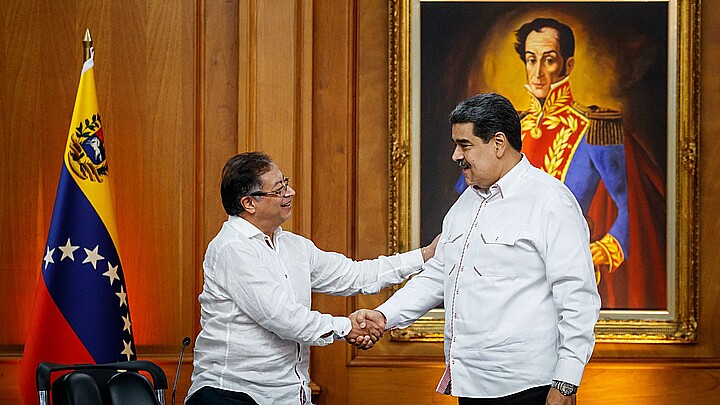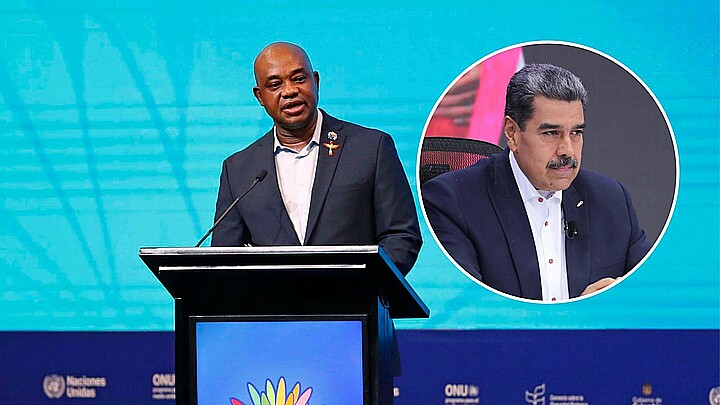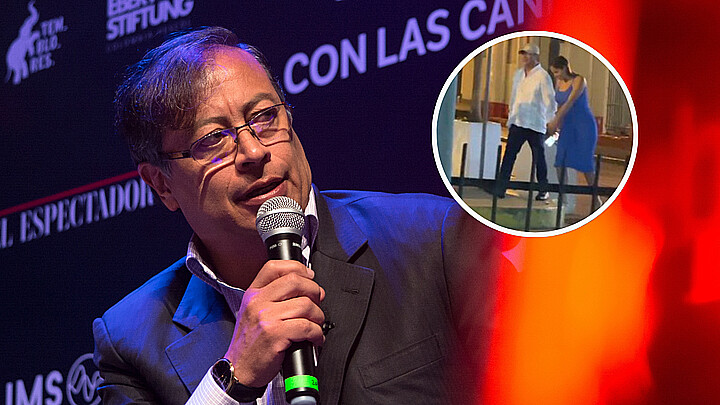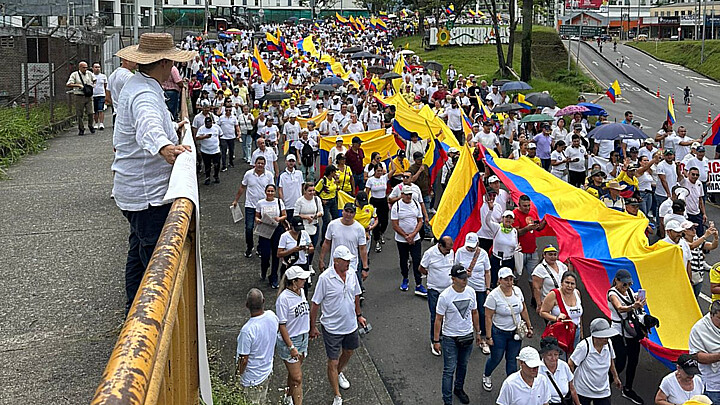Politics
Gustavo Petro called "dictator" for saying he's the "boss" of Colombia's Attorney General
Petro's comments generated a great commotion in Colombia, and received criticism from former presidents Andrés Pastrana and Iván Duque, as well as from several jurists and Human Rights Watch (HRW)
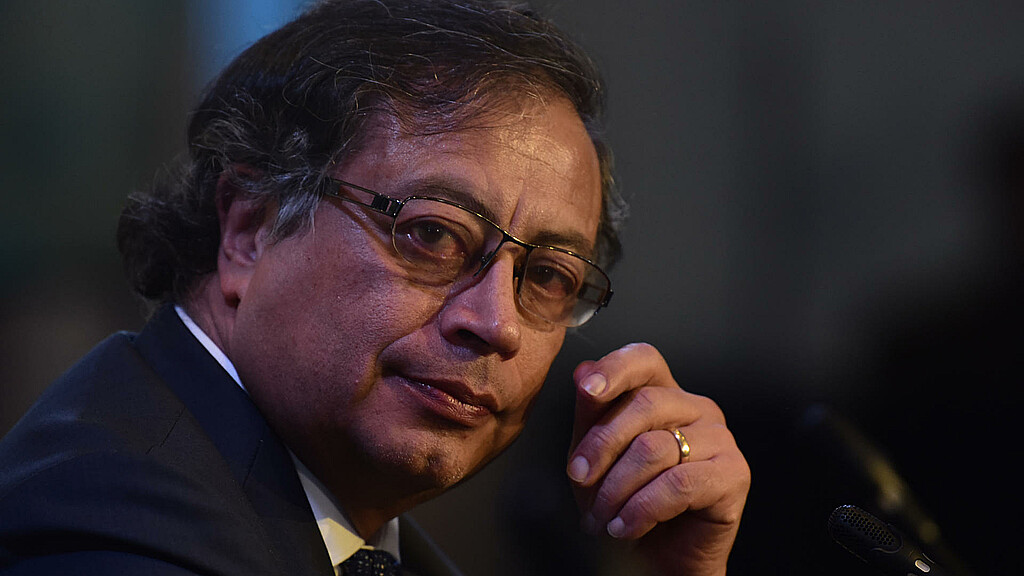
May 8, 2023 10:17pm
Updated: May 8, 2023 10:17pm
Colombia's leftist president, Gustavo Petro, was described on Friday as a "dictator," "emperor," and "ignoramus" after declaring himself the boss of the country's attorney general, Francisco Barbosa. The statement reportedly provoked a verbal confrontation between both men.
The discussion began when Petro assured in statements to the Spanish press that as head of state "he is demanding" information on a specific case and "not insults from someone" who is not "an administrative head, neither more nor less, but who deserves to respond to the head of state.
"The prosecutor forgets one thing that the Constitution orders: I am the head of state, therefore his boss," said Petro.
Petro's statement came amid a controversy that he has had for months with the Attorney General, who has questioned the president's decisions, mainly related to his "Total Peace" policy.
Petro's statements sparked a strong discussion, especially in the judiciary, which expressed concern that the president is making an "erroneous interpretation of article 115 of the Constitution."
The Supreme Court of Justice considered that what the president's declaration ignores "the autonomy and judicial independence, the founding clause of Colombian democracy and an essential pillar of the Social State of Law."
The high court reminded the head of state that "judges, in their rulings, are only subject to the rule of law, while prosecutors are also governed by strict legality controls in their actions."
Prosecutor Barbosa, in response to the president's statements, described the statement as "an attack against the Constitution, the Judicial Branch and the division of powers in Colombia," in an interview with the radio station La FM.
Hours later, the high official announced that his family will leave the country for "fear of being murdered as a result of" Petro's statements.
"This is not a game, this is not a mechanism that can be taken lightly. Gustavo Petro is not the head of a country's opposition, he is the head of state," Barbosa said in statements to the press.
Barbosa said that "Colombians such as (politicians) Luis Carlos Galán, Rodrigo Lara and many others have been murdered in this country, which were declared State crimes."
Criticism of Petro
Petro's comments had a great impact in the country, receiving criticism from former presidents Andrés Pastrana and Iván Duque, from jurists and also from Human Rights Watch (HRW).
In a message on Twitter, former Colombian President Iván Duque, who preceded Petro, said: "Being president does not mean being an emperor and seeking to subdue the autonomy of the entities for checks and balances. The Prosecutor's Office is not subordinated to the wishes of any political leader. To claim otherwise would be to violate the Constitution."
Ser Jefe de Estado no significa ser emperador y pretender someter la independencia de poderes y a los organismos de control.
— Iván Duque 🇨🇴 (@IvanDuque) May 5, 2023
La Fiscalía no esta supeditada a los caprichos de ningún gobernante.
Pretenderlo es romper la constitución.
Former President Andrés Pastrana expressed his concern about Gustavo Petro's position, alleging that his ignorance of the separation of powers is an affront to the rule of law and a threat to the country's democratic institutions. Pastrana classified as very serious the radical attack on the rule of law by Petro, launched from foreign territory, either due to his totalitarian tendencies or ignorance.
Por su espíritu totalitario o por ignorancia, Petro decidió desconocer que la separación de poderes es el principio fundamental de la democracia. Su ataque radical al Estado de Derecho,lanzado desde territorio extranjero,es gravísimo para las instituciones democráticas.
— Andrés Pastrana A (@AndresPastrana_) May 5, 2023
Human Rights Watch (HRW) considered Petro's statements "worrisome." and affirmed that the Prosecutor's Office is part of the judicial branch and therefore independent of the Executive.
Preocupantes estas declaraciones del Presidente @petrogustavo. Según la Constitución Política del 91, la Fiscalía es parte de la rama judicial y por lo tanto independiente del ejecutivo. https://t.co/8xEWK8lcrQ
— Juan Pappier (@JuanPappierHRW) May 5, 2023
The acting deputy director for the Americas at HRW, Juan Pappier, said on Twitter that "these statements by President Petro are worrying. According to the Political Constitution of 1991, the Prosecutor's Office is part of the judicial branch and therefore independent from the Executive."
This report was compiled with information from EFE wire service.

